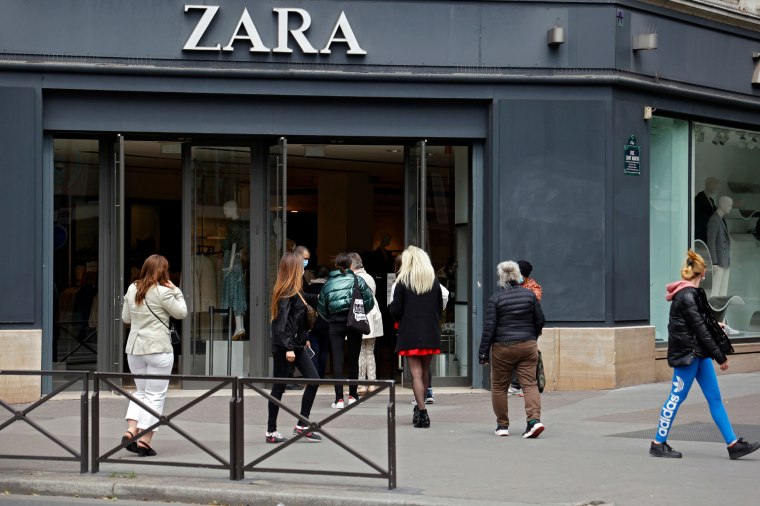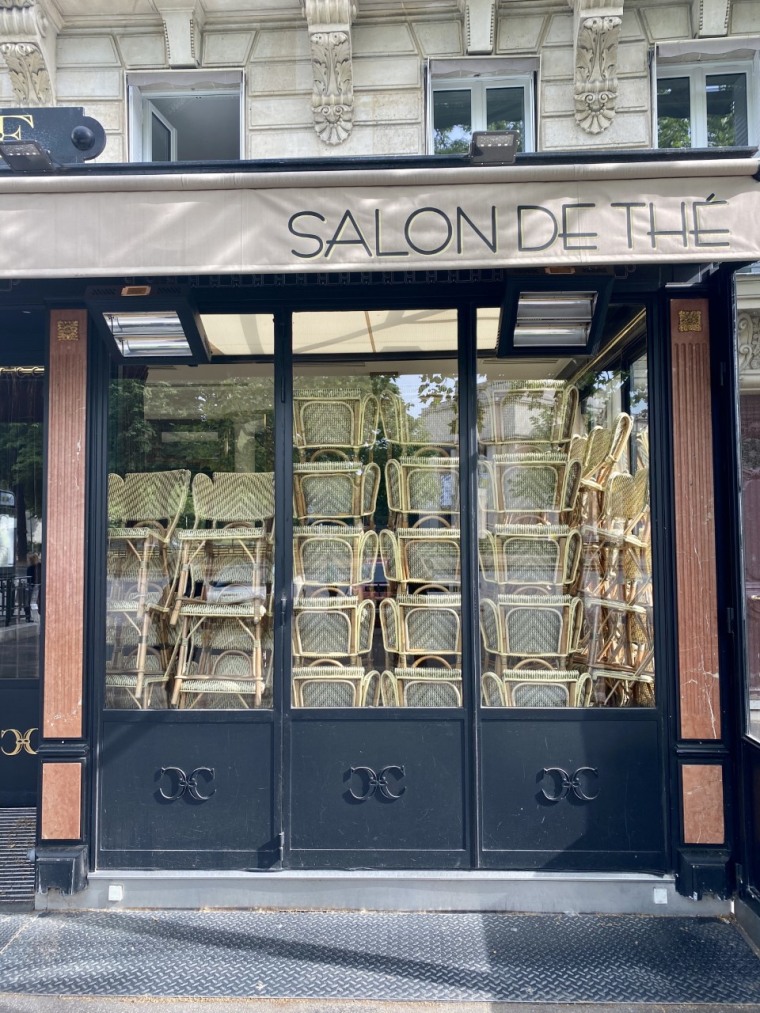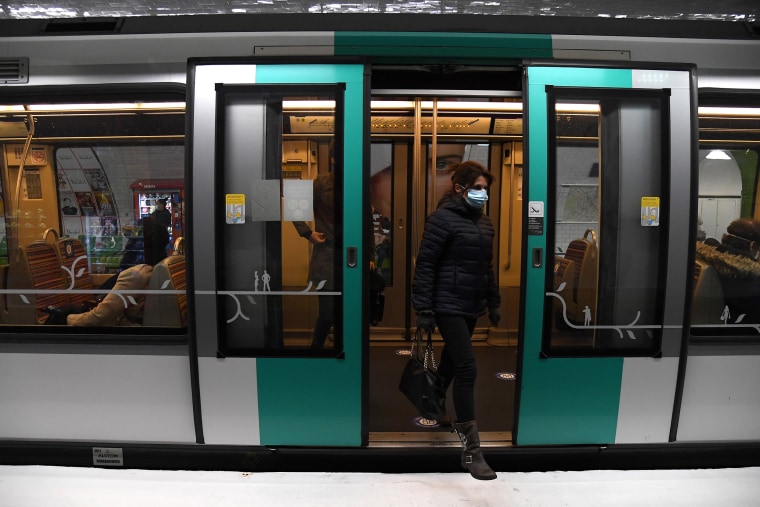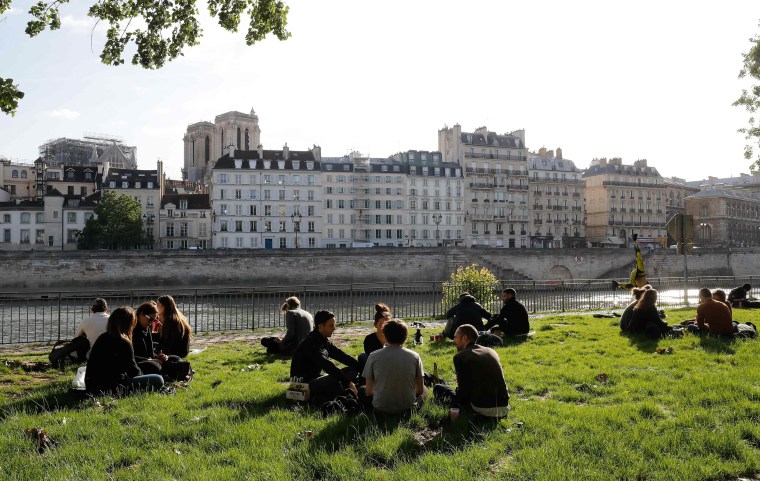PARIS — The Champs-Élysees was crowded on Monday, but it's all relative.
The famous boulevard had its busiest day in months after a 55-day nationwide coronavirus lockdown, one of the strictest in Europe, partially lifted. But it's hard to imagine what Paris' busiest shopping street used to look like — there's not a tourist in sight.
For the first time since March 16, the French can now leave their houses without a government permit explicitly stating their essential task, such as grocery shopping, going to work or one hour of exercise.

Along with countries across Europe, France is lifting stringent measures that confined millions to their homes — but it's stepping lightly.
Some 400,000 businesses across France reopened Monday, but restaurants and bars are still shuttered. The city's famous cafe chairs remain stacked in the windows. Iconic tourist sites such as the Louvre and Musée D'Orsay will likely stay closed until June — the French government says those openings will be dependent on the infection rate and new case numbers.
And like in all big cities, transportation is one of the biggest challenges. How do you start safely moving people around without undoing eight weeks of work?
At Gare Saint-Lazare station in central Paris, waves of commuters and people dragging suitcases arrived all Monday morning. And that's exactly what Paris city officials are trying to avoid.

"We understand people have fear about going back to public transportation," Deputy Mayor Jean-François Martins told NBC News. The mayor's office identified the busiest subway routes and created more capacity for pedestrians and cyclists above ground on the same routes.
"Obviously in a pandemic, situation density is kind of an enemy so we needed to create space and room and distance between the people," Martins said.
Paris will transform its biggest cross-city thoroughfare into a bike-only highway, Martins explained, excluding taxis and buses. Widening existing bike lanes and creating new pedestrian walkways have been discussed, as has reclaiming parking spaces.
"Anything to get people thinking more about cycling and walking — the healthiest way to travel, and easiest way to control the distance," he said.
As Paris doubles down on two wheels, bike shops are seeing the spoils.
"Everyone is a biker now," says Damien Valenza, the manager at Culture Vélo, one of the city's biggest bike shops. Only three customers are allowed inside at once and on a recent day a line of customers snaked outside the shop, waiting to either choose a new bike or pick up a repaired one. The shop's owner estimates a sales bump of more than 50 percent.

American Sam Weaver, owner of the Paris Bike Company, has seen the opposite. Dealing mostly with high-end road bike rentals for international travelers headed for the French countryside, he's seen business plummet.
"We get people from around the world," Weaver tells NBC News. "The problem is, of course, no one from around the world can get in."
The business lost tens of thousands of dollars in the last two months as it prepares for a lackluster summer season. Thanks to government loans, he's optimistic the business will survive and like many small business owners Weaver is now contemplating diversifying, perhaps by doing repairs on normal city bikes and catering to a more local clientele.
As for his family of four, including daughters Madeline, 8, Eloise, 13, and mom Mélanie Hamon, a microbiologist at the Pasteur Institute in Paris, they are prepared for life on two wheels.

"Honestly, not much will change after deconfinement," Mélanie Hamon tells NBC News. "We'll see my parents, the girls will see friends but neither of us will go back to work."
When schools go back later this week for some of the most underprivileged Parisians and the kids of essential workers, Madeline and Eloise will continue the grind of home schooling. "I miss all my new friends," Madeline piped up. Like most eight year-olds, she doesn't have the phone numbers of her many primary school buddies.
Hamon added that as a scientist and a mother, honesty has been the easiest way to deal with the children's constant questions.
"I make sure I explain everything to them." she told NBC News. "If there's a reason behind why we're doing things, why we're locked down, why we wear masks then I think it's easier to understand and less scary."


